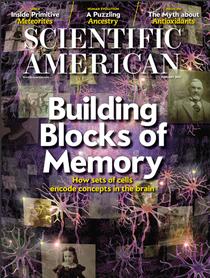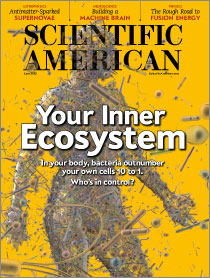The Evolution-Creationism Controversy as a Test Case in Equal Time and Free Speech
A book chapter for The Palgrave Handbook of Philosophy and Public Policy (December 26, 2018), edited by David Boonin.
During the second week of March, 1837, barely a year and a half after circumnavigating the globe in the H.M.S. Beagle, Charles Darwin met with the eminent ornithologist John Gould, who had been studying Darwin’s Galápagos bird specimens. With access to museum ornithological collections from areas of South America that Darwin had not visited, Gould corrected a number of taxonomic errors Darwin had made, such as labeling two finch species a “Wren” and “Icterus”, and pointed out to him that although the land birds in the Galápagos were endemic to the islands, they were notably South American in character.
According to the historian of science Frank J. Sulloway, who carefully reconstructed Darwin’s intellectual voyage to the discovery of the theory of evolution by means of natural selection, Darwin left the meeting with Gould convinced “beyond a doubt that transmutation must be responsible for the presence of similar but distinct species on the different islands of the Galápagos group. The supposedly immutable ‘species barrier’ had finally been broken, at least in Darwin’s own mind.”1 That July Darwin opened his first notebook on Transmutation of Species. By 1844 he was confident enough to write in a letter to his botanist friend and colleague Joseph Hooker: “I was so struck with distribution of Galapagos organisms &c &c, & with the character of the American fossil mammifers &c &c, that I determined to collect blindly every sort of fact which cd bear any way on what are species.” Five years at sea and nine years at home pouring through “heaps” of books led Darwin to admit: “At last gleams of light have come, & I am almost convinced, (quite contrary to opinion I started with) that species are not (it is like confessing a murder) immutable.”2
Like confessing a murder. How could a solution to a technical problem in biology, namely the immutability of species, generate such angst in its discoverer? The answer is obvious: if new species are created naturally instead of supernaturally, there’s no place for a creator God. No wonder Darwin waited twenty years before publishing his theory, and he would have waited even longer had he not rushed into print for priority sake because the naturalist Alfred Russel Wallace had sent Darwin his own theory of evolution in 1858, the year before Darwin published On the Origin of Species.3 And no wonder it took some time for Darwin to convince others of the theory’s veracity. The geologist Charles Lyell, a close friend and colleague of Darwin who groomed him into the world of British science and whose geological works Darwin read on the Beagle, withheld his support for a full nine years, and even then pulled back from fully embracing naturalism, leaving room for providential design underlying the entire natural system. The astronomer John Herschel sniffed at natural selection, calling it the “law of higgledy-piggledy.” In a review in the popular Macmillan’s Magazine, the statesman and economist Henry Fawcett spoke of a great divide created by Darwin’s book: “No scientific work that has been published within this century has excited so much general curiosity as the treatise of Mr. Darwin. It has for a time divided the scientific world with two great contending sections. A Darwinite and an anti-Darwinite are now the badges of opposed scientific parties.”4 (continue reading…)
read or write comments (24)
This chapter contribution to Scientific American was originally published as “These Truths Are Not Self-Evident—but They’ve Been Firmly Established Over and Over by Scientific Research” (November, 2016). It was co-authored by Michael Shermer, Harriet Hall, Ray Pierrehumbert, Paul Offit, and Seth Shostak.
In a letter to his friend the botanist Joseph Hooker, dated January 14, 1844, Charles Darwin recalled from his voyage around the world in the HMS Beagle: “I was so struck with distribution of Galapagos organisms &c &c…that I determined to collect blindly every sort of fact which cd bear any way on what are species.” After five years at sea and nine years at home thinking about the origin of species Darwin concluded: “At last gleams of light have come, & I am almost convinced, (quite contrary to opinion I started with) that species are not (it is like confessing a murder) immutable.”
Like confessing a murder. Dramatic words. But it doesn’t take a rocket scientist—or an English naturalist—to understand why a theory on the origin of species by means of natural selection would be so controversial: if new species are created naturally—not supernaturally—what place, then, for God? No wonder Darwin waited 20 years before finally publishing his theory in 1859, and why more than a century and a half later people of some religious faiths still find the theory threatening. But that 150+ years have brought together so much evidence in support of the theory that it would be truly astonishing if it turned out not to be true—on par with doubting the Big Bang origin of the universe or the germ theory of disease. Why? Because of a convergence of evidence from many lines of inquiry.
Cosmologists, for example, reconstruct the history of the universe through a convergence of evidence from astronomy, astrophysics, planetary geology, and physics. Geologists reconstruct the history of the Earth through a convergence of evidence from geology, geophysics, and geochemistry. Archeologists piece together the history of civilization through a convergence of evidence from pollen grains, kitchen middens, potshards, tools, works of art, written sources, and other site-specific artifacts. As a historical science, evolution is confirmed by the fact that so many different lines of evidence converge to this single conclusion. Independent sets of data from geology, paleontology, botany, zoology, herpetology, entomology, biogeography, comparative anatomy and physiology, genetics and population genetics, and many other sciences each point to the conclusion that life evolved. (continue reading…)
Comments Off on Evolution is Still True
How politics distorts science
on both ends of the spectrum
Believe it or not—and I suspect most readers will not—there’s a liberal war on science. Say what?
We are well aware of the Republican war on science from the eponymous 2006 book (Basic Books) by Chris Mooney, and I have castigated conservatives myself in my 2006 book Why Darwin Matters (Holt) for their erroneous belief that the theory of evolution leads to a breakdown of morality. A 2012 Gallup Poll found that “58% of Republicans believe that God created humans in their present form within the last 10,000 years,” compared with 41 percent of Democrats. A 2011 survey by the Public Religion Research Institute found that 81 percent of Democrats but only 49 percent of Republicans believe that Earth is getting warmer. Many conservatives seem to grant early-stage embryos a moral standing that is higher than that of adults suffering from debilitating diseases potentially curable through stem cells. And most recently, Missouri Republican senatorial candidate Todd Akin gaffed on the ability of women’s bodies to avoid pregnancy in the event of a “legitimate rape.” It gets worse. (continue reading…)
read or write comments (14)
Evolution helps to explain why parties
are so tribal and politics so divisive
Which of these two narratives most closely matches your political perspective?
Once upon a time people lived in societies that were unequal and oppressive, where the rich got richer and the poor got exploited. Chattel slavery, child labor, economic inequality, racism, sexism and discriminations of all types abounded until the liberal tradition of fairness, justice, care and equality brought about a free and fair society. And now conservatives want to turn back the clock in the name of greed and God.
Once upon a time people lived in societies that embraced values and tradition, where people took personal responsibility, worked hard, enjoyed the fruits of their labor and through charity helped those in need. Marriage, family, faith, honor, loyalty, sanctity, and respect for authority and the rule of law brought about a free and fair society. But then liberals came along and destroyed everything in the name of “progress” and utopian social engineering.
Although we may quibble over the details, political science research shows that the great majority of people fall on a left-right spectrum with these two grand narratives as bookends. And the story we tell about ourselves reflects the ancient tradition of “once upon a time things were bad, and now they’re good thanks to our party” or “once upon a time things were good, but now they’re bad thanks to the other party.” So consistent are we in our beliefs that if you hew to the first narrative, I predict you read the New York Times, listen to progressive talk radio, watch CNN, are pro-choice and anti-gun, adhere to separation of church and state, are in favor of universal health care, and vote for measures to redistribute wealth and tax the rich. If you lean toward the second narrative, I predict you read the Wall Street Journal, listen to conservative talk radio, watch Fox News, are pro-life and anti–gun control, believe America is a Christian nation that should not ban religious expressions in the public sphere, are against universal health care, and vote against measures to redistribute wealth and tax the rich. (continue reading…)
read or write comments (13)
Reviews of The Moral Molecule: The Source of Love and Prosperity by Paul J. Zak, and Moral Origins: The Evolution of Virtue, Altruism, and Shame by Christopher Boehm. This piece was originally published in both the print and online edition of the Wall Street Journal on May 26, 2012, under the title “Kin and Kindness.”
It is the oldest and most universally recognized moral principle that was codified over two millennia ago by the Jewish sage Hillel the Elder: “Whatsoever thou wouldst that men should not do to thee, do not do that to them. This is the whole Law. The rest is only explanation.” That explanation has been the subject of intense theological and philosophical disputation for millennia, and recently scientists are weighing in with naturalistic accounts of morality, such as the two books under review here.
Paul J. Zak is an economist and pioneer in the new science of neuroeconomics who built his reputation on research that identified the hormone oxytocin as a biological proxy for trust. As Zak documents, countries whose citizens trust one another have higher average GDPs, and trust is built through mutually-beneficial exchanges that result in higher levels of oxytocin as measured in blood draws of subjects in economic exchange games as well as real-world in situ encounters. The Moral Molecule is an engaging and enlightening popular account of Zak’s decade of intense research into how this molecule evolved for one purpose—pair bonding and attachment in social mammals—and was co-opted for trust between strangers. (continue reading…)
Comments Off on Unto Others



